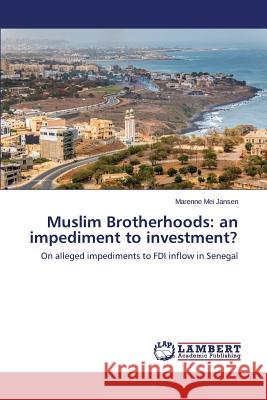Muslim Brotherhoods: an impediment to investment? » książka
Muslim Brotherhoods: an impediment to investment?
ISBN-13: 9783659712449 / Angielski / Miękka / 2015 / 60 str.
This research addresses the widespread myth that religious institutions supposedly have an impact on economic development. Empirical evidence is presented concerning the relationship between religious affiliation and the inflow of Foreign Direct Investment (FDI) into Senegal, investigating the influence from Muslim brotherhoods on the inflow of FDI into the country. Methods employed are a cross-country study, a long-term comparison and a qualitative analysis based on literature and field research. Findings show that Islamic institutions such as Muslim brotherhoods do have an influence on economic and political affairs. Results from both the cross-country study and the country-specific research do not support the notion however that Muslim brotherhoods form a significant impediment to FDI inflows in Senegal. From this study it must be concluded that factors other than religious affiliation are more prominent in explaining the low FDI-inflows in Senegal.
This research addresses the widespread myth that religious institutions supposedly have an impact on economic development. Empirical evidence is presented concerning the relationship between religious affiliation and the inflow of Foreign Direct Investment (FDI) into Senegal, investigating the influence from Muslim brotherhoods on the inflow of FDI into the country. Methods employed are a cross-country study, a long-term comparison and a qualitative analysis based on literature and field research. Findings show that Islamic institutions such as Muslim brotherhoods do have an influence on economic and political affairs. Results from both the cross-country study and the country-specific research do not support the notion however that Muslim brotherhoods form a significant impediment to FDI inflows in Senegal. From this study it must be concluded that factors other than religious affiliation are more prominent in explaining the low FDI-inflows in Senegal.











